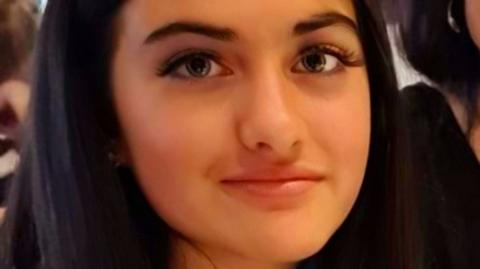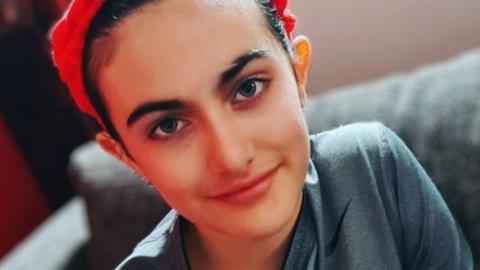When 12-year-old Semina Halliwell was lying in hospital, she asked the consultant if she was going to die. Semina told him she had wanted "go to sleep for a couple of days".
She was placed in an induced coma but died soon after, on 12 June 2021.
Three days earlier, she had posted on social media: "I may laugh and smile every day but I'm in so much pain." The same day, she went to her bedroom and swallowed her mother's prescription medication.
An inquest, which concluded on Thursday, heard evidence about Semina's state of mind in the months leading up to her death.
"She went from being a bright and bubbly girl, to being depressed and withdrawn," Semina's mother, Rachel Halliwell, told the court. She spoke while clutching a portrait of her child and her daughter's favourite denim jacket.


